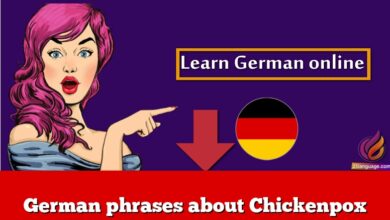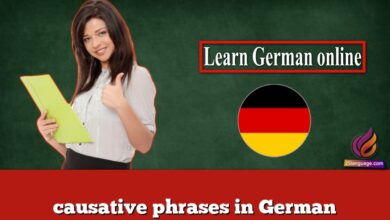Learn German Modals with different verbs
German Modals
In the previous lessons , you learned that German has no helping verbs . Instead , they have modals , words that basically do the same thing . German Modals are conjugated very differently from normal verbs . The ich– and er/sie/es-forms are always the same , while the du-form adds an ‘st’ . Most modals experience a vowel change from singular to plural , and the rest is the same .
Möchten : :
Möchten isn’t technically a modal , but it acts exactly the same . There is no vowel change , and the ich- and er/sie/es forms are “möchte” . Here is the complete conjugation :

Möchten means “would like” and can be applied to food (i.e. Ich möchte einen Cheeseburger) . Möchten can be translated even more literally as “would like to”, and is traditionally used with an infinitive verb at the end of the sentence (i.e. “Ich möchte jetz gehen”/”I would like to go now”) .
However , this infinitive is not necessary if it’s completely obvious what you’re talking about (If you say “Ich möchte einen Cheeseburger”, everyone will assume that you would like a cheeseburger to eat) .
Wollen :
Wollen is a true modal ; it even changes vowels. Ich/er/sie/es will and du willst. Here is the complete conjugation :

Wollen can also be applied to food , but may be considered impolite and demanding (“Ich will einen Cheeseburger!” roughly means “I demand a cheeseburger!” Möchten should be used instead: “Ich möchte einen Chesseburger!” = “I want a chesseburger!”) .
Wollen should not be confused with the future tense , despite the presence of the English word ‘will’ in the conjugations . However, will can also mean an intent or a document showing what one wants to happen . So it is not so different from ‘to want’ as possibly originally presumed .
German Modals with other verbs :
When you need to use another verb with German modals (Such as expressing you would like or want to preform an action) the sentence’s word order is somewhat different than it would be in English . In English you would state the subject pronoun (such as “I”), an English equivalent to the modal verb (such as “want”), the action you want to preform (such as “to eat”) and than what the action will be preformed on (such as “hamburger”) , making the sentence “I want to eat a hamburger” . In German you must put the action at the end of the sentence , making the sentence “I want a hamburger to eat.” (“ Ich will einen Hamburger essen .“)
Hunger and Thirst
In German , instead of saying, “I’m hungry.”, you say “I have hunger.” The same applies to thirst . Here are the German translations :
- Hunger – der Hunger
- Thirst – der Durst
Like in English , these two words do not have a plural form . When using them , you don’t need to worry about the ‘der’; you can just say , “Ich habe Hunger.” to say “I am hungry” .




























